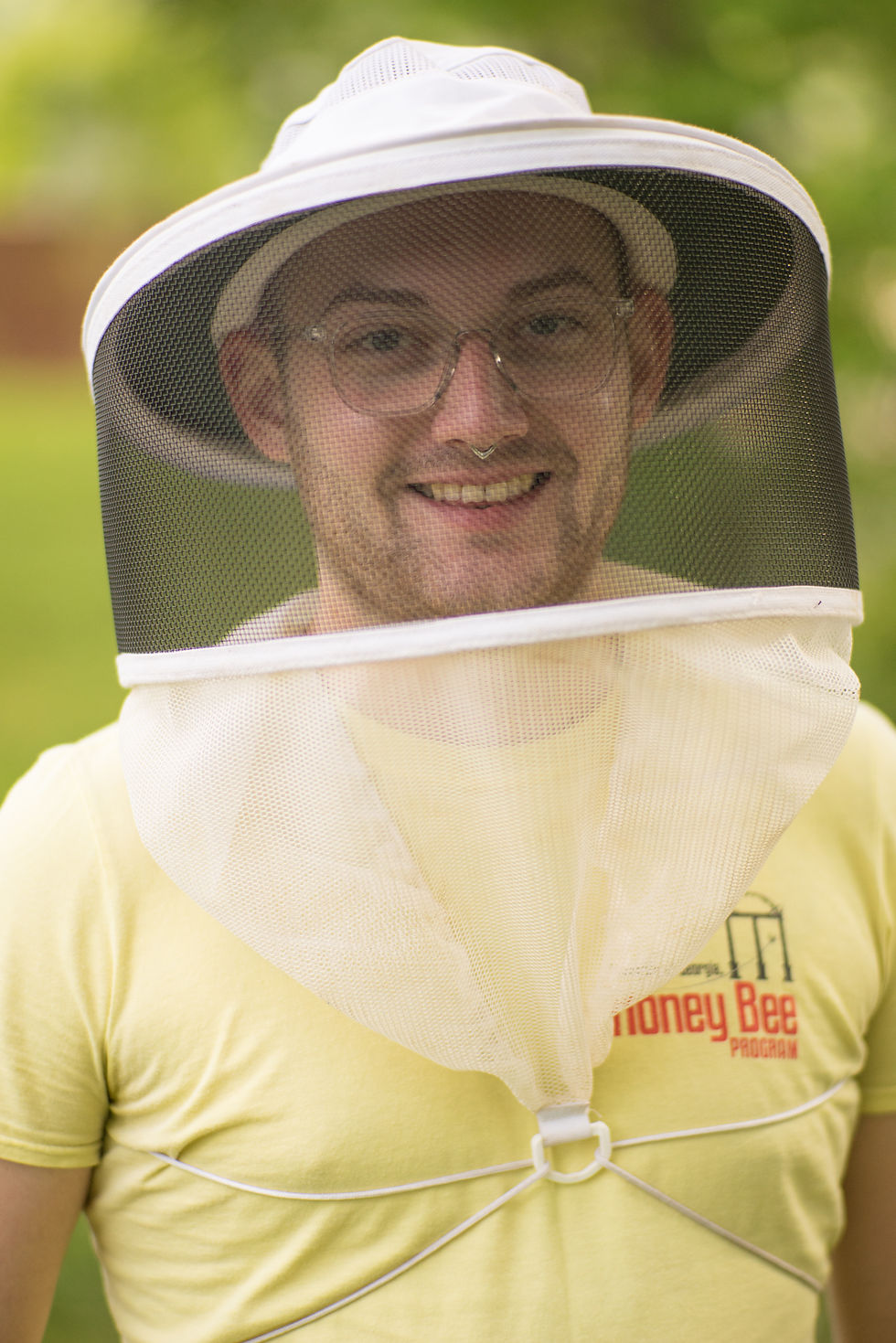March 2024 Mini-Conference: An Evening About Small Hive Beetle
- kurtferreira
- Mar 5, 2024
- 3 min read
March 13th, 2024, 7 PM (Mountain Daylight Time), 1 AM UTC

First Presentation: "Frontiers in Small Hive Beetle Control", by Dr. Lewis Bartlett, Univ Georgia
Summary: Dr Bartlett will feature new research from his lab and collaborators about small hive beetle – biology and control. For his research focus see: https://www.bartlett.science/current-research and recent publication: 2023. Successful application of anthranilic diamides in preventing small hive beetle (Coleoptera: Nitidulidae) infestation in honey bee (Hymenoptera: Apidae) colonies. Jour. Insect Science (https://academic.oup.com/jinsectscience/article/23/6/12/7458959)
Bio: Dr Lewis Bartlett is a professor at the University of Georgia, where he co-directs the UGA Bee Lab. Lewis has been beekeeping for 12 years and first started with bees in Yorkshire, England, where he is from. he has kept bees all across England as well as in California, when he was completing his PhD at UC Berkeley, and in Georgia where he undertakes his research. Dr Bartlett's research program specializes in the control of parasites and pathogens in beekeeping, as well as how bees defend themselves against diseases and what we can do to help improve their natural immunity to all the threats they face.

Second Presentation: "Small Hive Beetle as Source of Honey Bee Contamination with Microplastics", by Dr. Ethel M. Villalobos, Past President WAS, Researcher at University of Hawaii
Summary: Dr Villalobos will discuss unexpected findings of Small Hive beetle as source of honey bee hive contamination with microplastics. Review: 2023. Management practice for small hive beetle as a source of microplastic contamination in honey and honeybee colonies. Environ Polution (https://www.sciencedirect.com/science/article/abs/pii/S0269749123011533)
Bio: Dr. Villalobos is originally from Costa Rica, where she obtained my BS degree. She attended UCLA where she studied mating strategies of bees and wasps. Her thesis research focused on solitary bees, in particular leaf cutters, and sand wasps. She became involved with honey bees when Varroa arrived in Hawaii in 2007-2008. Since then, she has been working mostly with honey bees in Hawaii, California, and Arizona, but have had international projects and workshops in Jamaica, Dominican Republic, Argentina, Uruguay, and Costa Rica.
Dr. Villalobos research interests encompass behavioral ecology, animal plant interactions including pollination and herbivory. Under this general umbrella, she has worked with a variety of taxa, including a variety of insects such as stingless bees, solitary bees, flies, wasps, and butterflies and even a few bird species. She studied a range of field problems in honey bee health: flower handling and temporal patterns of floral visitation by bees, deformed wing virus and Varroa impact in Hawaii, Africanization in Jamaica and the Dominican Republic and pollination of nut crops (macadamia and almonds.)
She currently works in collaboration with Dr. Stephen J. Martin (UK) and local beekeepers and farmers in the management and control of Varroa destructor. For this project they have been gathering information on the appearance of resistant traits against the mite on the island of Oahu, where a significant portion of the beekeepers have reduced or stopped treating and mite resistant behavioral traits are now common among feral and managed bees. In addition, they are examining the success of small hive beetle traps placed on different parts of the colony. The beetle densities in Hawaii can be very variable and there is no known threshold level against this pest. Traps and strong colonies densely packed are the best defense, but trap position does play a role. Also they have examined the use of microfiber sheets for small hive beetle control and the unexpected microplastic contamination in hives.








Comments